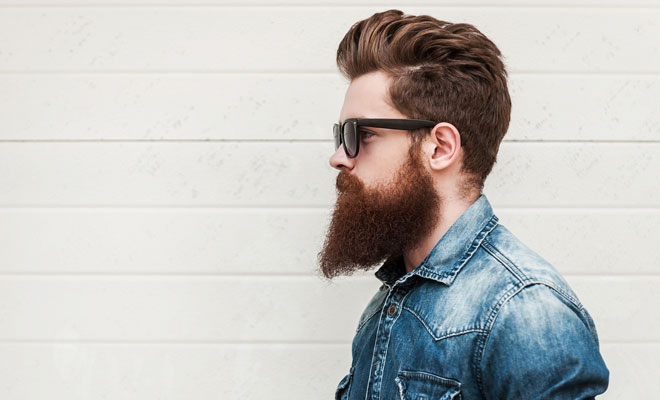We are almost getting used to hearing about some of the best-known phobias, such as arachnophobia or agoraphobia, for example. And we even incorporate them into our regular conversations. But there are many phobias, rare, little known and very curious, and among them is pogonophobia or the fear of beards, a disorder that we talk about in our dictionary.

What is pogonophobia?
Pogonophobia is the fear of beards, a disorder that is very difficult to cope with today when beards are precisely the trend. But pogonophobia has always existed; perhaps it is pogonophilia or excessive love for the beard that is on the rise and with unstoppable force.
Being afraid of beards, like all, involves the avoidance reaction. Can you avoid seeing a beard in your day to day? Most likely not. Nor can you avoid talking to a man with a beard and surely you will find more than one on the street and in your circle of friends.
Symptoms of pogonophobia
The fear of beards is a very limiting phobia, since the possibility of avoiding the stimulus that produces fear is practically nil unless you resort to total isolation. And in the meantime, you have to deal with the symptoms Every time you meet a man with a beard.
Nervousness, a feeling of unreality, hyperventilation, a feeling of suffocation, numbness in the extremities, dizziness, nausea… A whole cocktail that can lead to a panic attack. All for a beard. Nor does it have to be so different to us from other phobias related to others such as bromidrosiphobia or oenophobia.
Causes of pogonophobia
Many people cannot understand how a beard can be the subject of a phobia. Like so many phobic disorders, conditioning due to traumatic experience is the most common origin, associating the beard with negative behavior or someone who once caused you some harm.
But in the case of pogonophobia there is also a cultural factor that favors the development of this disorder. That the beard is associated with certain masculine characteristics is evident and in the case of this phobia, negative aspects of masculinity are reinforced. Religious fanaticism, for example, can also be associated with a beard.
Treatment of pogonophobia
Because it is very difficult to live with this phobia on a daily basis without it going unnoticed, it is best to see a professional as soon as possible. Psychology finds its best ally in cognitive to overcome any phobia, since it works on thought and behavior equally.
And in any case, the constant presence of anxiety when you suffer from a phobia makes it necessary to regularly practice relaxation that helps to cope with situations of fear and panic and considerably improve the quality of life.
